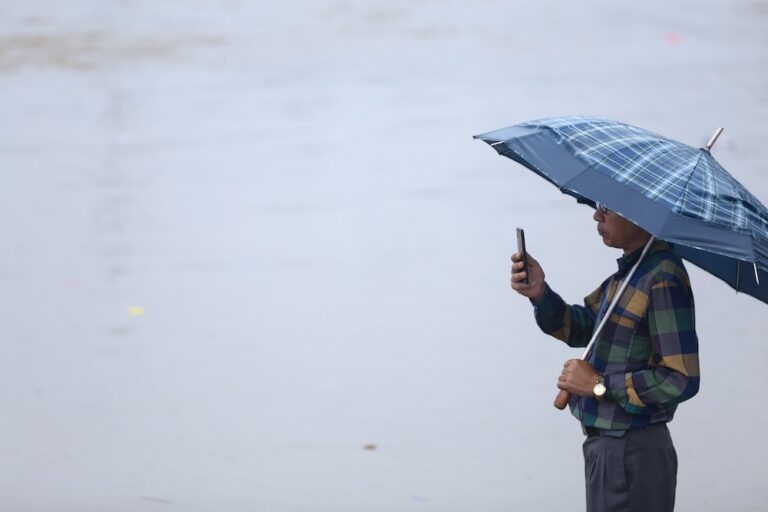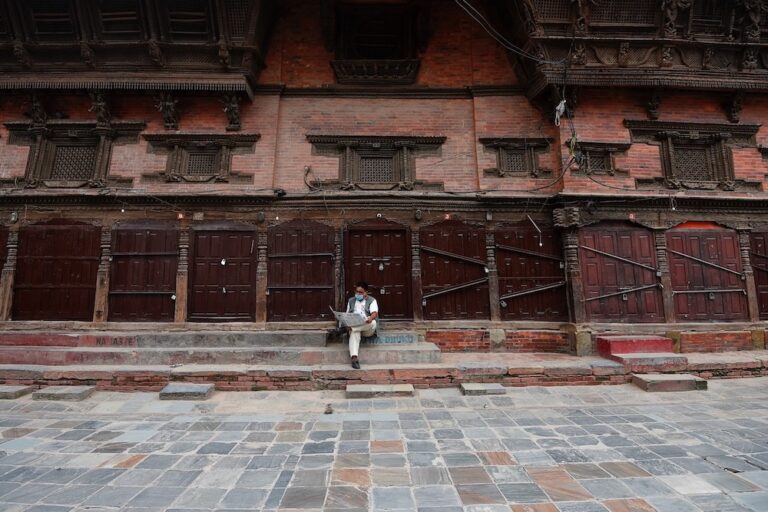(CEHURDES/IFEX) – According to CEHURDES’s sources, plainclothes security forces agents have been surrounding the house of Kishor Shrestha, editor of “Janaastha” weekly, since 8 January 2003. They have also harassed the journalist’s family and attempted to arrest him. Security forces raided Shrestha’s house (located in Nakhu, Lalitpur district) on the morning of 8 January. Federation […]
(CEHURDES/IFEX) – According to CEHURDES’s sources, plainclothes security forces agents have been surrounding the house of Kishor Shrestha, editor of “Janaastha” weekly, since 8 January 2003. They have also harassed the journalist’s family and attempted to arrest him.
Security forces raided Shrestha’s house (located in Nakhu, Lalitpur district) on the morning of 8 January. Federation of Nepalese Journalists (FNJ) President Taranath Dahal told CEHURDES that Shrestha has been living in a secure location under the FNJ’s protection since then.
The authorities have not explained the motive behind their attempt to arrest the journalist, however, the Supreme Court of Nepal has scheduled a hearing for 14 January to examine the alleged suicide of actress Shreesha Karki on 14 October 2002. The FNJ filed a writ with the Supreme Court in early December against two criminal cases brought by the authorities against Shrestha, claiming he was involved in the actress’s murder. The Press Council took action against Shrestha in mid-December on accusations that he violated the journalists’ code of conduct introduced by the Press Council and the FNJ.
Background Information
Following the imposition of a state of emergency on 26 November 2001, more than 150 journalists were arrested in different parts of the country. The state of emergency was lifted on 28 August 2002, but more than two dozen journalists remain in detention. Some journalists have reportedly been physically and psychologically tortured. Several detainees’ whereabouts are unknown. There have been no reports of official charges filed against any of the detained journalists.
On 4 October, King Gyanendra assumed all executive powers. Prime Minister Sher Bahadur Deuba was sacked and elections scheduled for 13 November were postponed for an indefinite period. On 11 October, the king formed a government under monarchist Prime Minister Lokendra Bahadur Chanda, granting him limited powers.
Since February 1996, Communist Party of Nepal (CPN-Maoist) rebels have been fighting to establish a republican state and abolish Nepal’s constitutional monarchy. More than 7,000 people have been killed in the conflict. Nearly half of the victims were killed after the state of emergency declaration.
The security forces killed journalist Krishna Sen in June 2002 after torturing him in custody (see IFEX alerts of 22 and 16 October, 27 and 8 August, 12 and 2 July, 26 June and 22 May 2002). Maoist rebels killed journalist Nawaraj Sharma (see alerts of 23 and 22 August 2002) and journalist Ambika Timsina was killed on 12 December by unknown assailants (see alert of 20 December 2002). The rebels also abducted journalists Demling Lama and Dhan Bahadur Roka (see alerts of 11 and 9 April 2002). Lama managed to escape but Roka’s whereabouts remain unknown.
Recommended Action
Send appeals to authorities:
– condemning the continuous interference in Shrestha’s activities
– urging them to end all forms of harassment against the journalist immediately
– calling for the release of all remaining journalists who have been held in detention since the imposition of the state of emergency
Appeals To
Right Hon. Lokendra Bahadur Chanda
Prime Minister
Singh Bahadur, Kathmandu, Nepal
c/o Permanent representative to United Nations
Fax: +977 1 227 286
E-mail: nepal@un.intHon. Dharma Bahadur Thapa
Minister for Home Affairs
Singh Bahadur, Kathmandu, Nepal
Fax: +977 1 225 156Mr. Shayam Bhakta Thapa
Inspector General of Police
Police Headquarters
Naxal, Kathmandu, Nepal
Fax: +977 1 415 593Please copy appeals to the source if possible.


